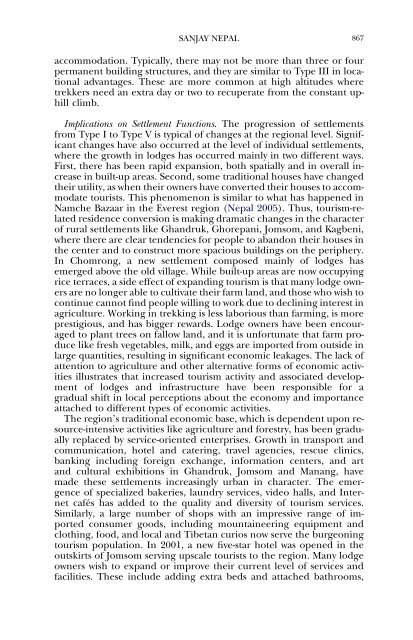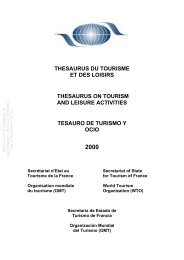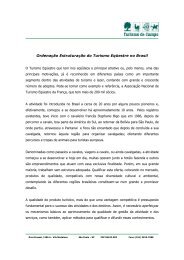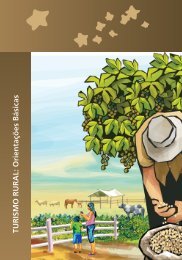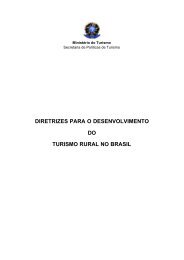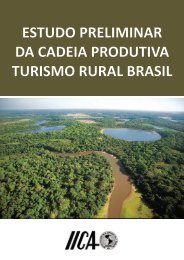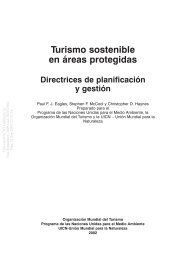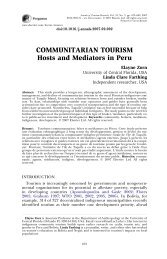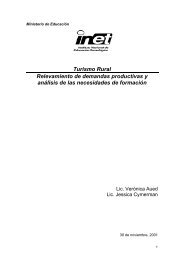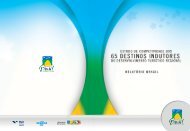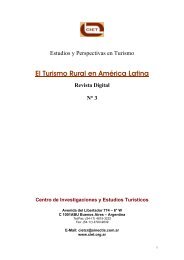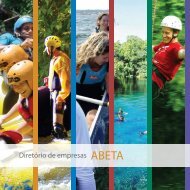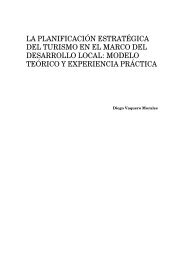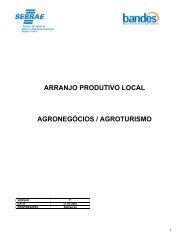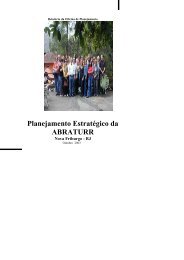TOURISM AND RURAL SETTLEMENTS Nepal's ... - ResearchGate
TOURISM AND RURAL SETTLEMENTS Nepal's ... - ResearchGate
TOURISM AND RURAL SETTLEMENTS Nepal's ... - ResearchGate
Create successful ePaper yourself
Turn your PDF publications into a flip-book with our unique Google optimized e-Paper software.
SANJAY NEPAL 867<br />
accommodation. Typically, there may not be more than three or four<br />
permanent building structures, and they are similar to Type III in locational<br />
advantages. These are more common at high altitudes where<br />
trekkers need an extra day or two to recuperate from the constant uphill<br />
climb.<br />
Implications on Settlement Functions. The progression of settlements<br />
from Type I to Type V is typical of changes at the regional level. Significant<br />
changes have also occurred at the level of individual settlements,<br />
where the growth in lodges has occurred mainly in two different ways.<br />
First, there has been rapid expansion, both spatially and in overall increase<br />
in built-up areas. Second, some traditional houses have changed<br />
their utility, as when their owners have converted their houses to accommodate<br />
tourists. This phenomenon is similar to what has happened in<br />
Namche Bazaar in the Everest region (Nepal 2005). Thus, tourism-related<br />
residence conversion is making dramatic changes in the character<br />
of rural settlements like Ghandruk, Ghorepani, Jomsom, and Kagbeni,<br />
where there are clear tendencies for people to abandon their houses in<br />
the center and to construct more spacious buildings on the periphery.<br />
In Chomrong, a new settlement composed mainly of lodges has<br />
emerged above the old village. While built-up areas are now occupying<br />
rice terraces, a side effect of expanding tourism is that many lodge owners<br />
are no longer able to cultivate their farm land, and those who wish to<br />
continue cannot find people willing to work due to declining interest in<br />
agriculture. Working in trekking is less laborious than farming, is more<br />
prestigious, and has bigger rewards. Lodge owners have been encouraged<br />
to plant trees on fallow land, and it is unfortunate that farm produce<br />
like fresh vegetables, milk, and eggs are imported from outside in<br />
large quantities, resulting in significant economic leakages. The lack of<br />
attention to agriculture and other alternative forms of economic activities<br />
illustrates that increased tourism activity and associated development<br />
of lodges and infrastructure have been responsible for a<br />
gradual shift in local perceptions about the economy and importance<br />
attached to different types of economic activities.<br />
The region’s traditional economic base, which is dependent upon resource-intensive<br />
activities like agriculture and forestry, has been gradually<br />
replaced by service-oriented enterprises. Growth in transport and<br />
communication, hotel and catering, travel agencies, rescue clinics,<br />
banking including foreign exchange, information centers, and art<br />
and cultural exhibitions in Ghandruk, Jomsom and Manang, have<br />
made these settlements increasingly urban in character. The emergence<br />
of specialized bakeries, laundry services, video halls, and Internet<br />
cafés has added to the quality and diversity of tourism services.<br />
Similarly, a large number of shops with an impressive range of imported<br />
consumer goods, including mountaineering equipment and<br />
clothing, food, and local and Tibetan curios now serve the burgeoning<br />
tourism population. In 2001, a new five-star hotel was opened in the<br />
outskirts of Jomsom serving upscale tourists to the region. Many lodge<br />
owners wish to expand or improve their current level of services and<br />
facilities. These include adding extra beds and attached bathrooms,


